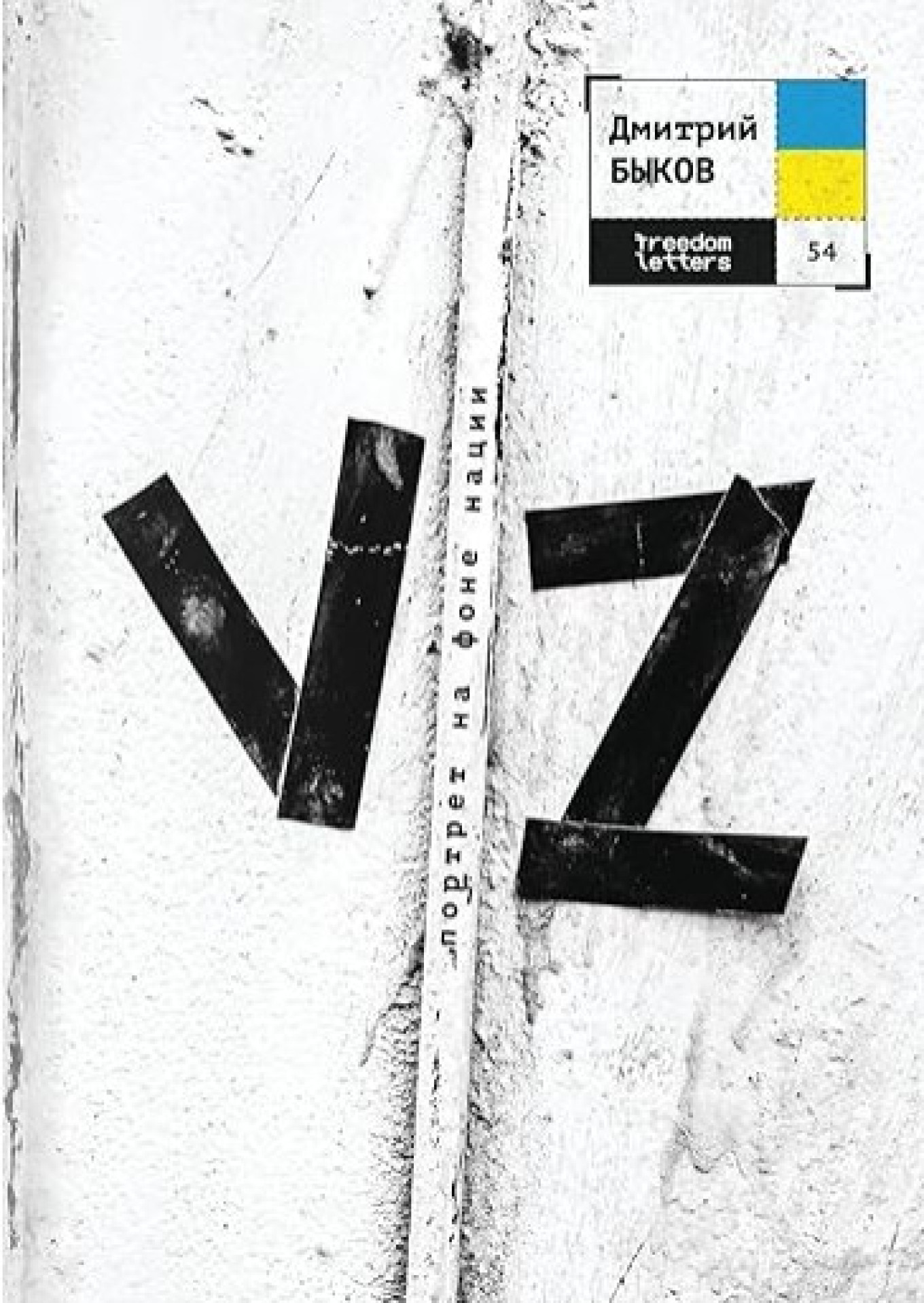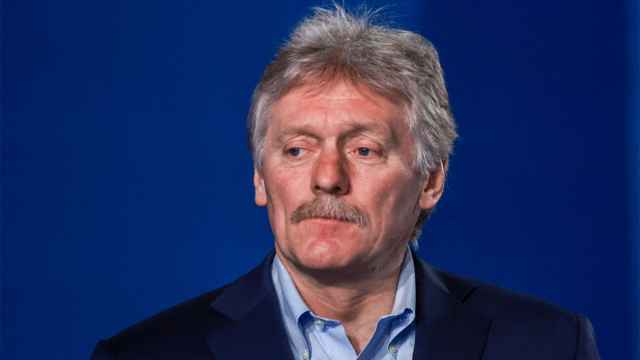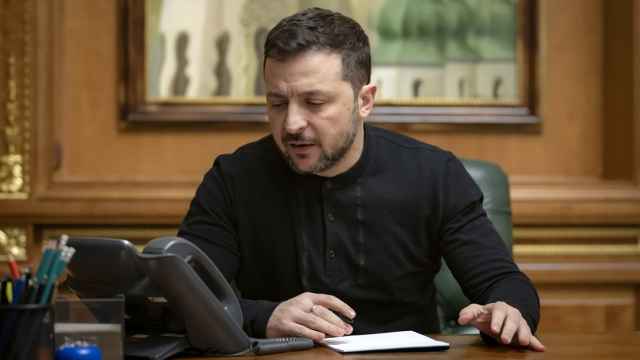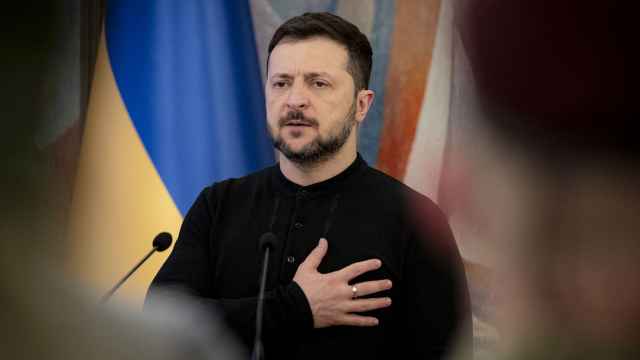Dmitry Bykov is not upset that his books have been banned in Russia. To the contrary, he is quite pleased.
“I’m grateful to [the Russian government] because I don’t want to have anything to do with them,” he told The Moscow Times via video call.
For years, Bykov has been one of Russia’s most celebrated poets, journalists and prose writers — and certainly the most prolific — and an outspoken critic of Russian President Vladimir Putin.
In December last year, one of the country’s leading publishing houses, AST, suspended the printing and sale of books by Bykov and the Russian-Georgian writer Boris Akunin over their anti-war views. Booksellers Chitay Gorod and Bukvoed, as well as e-book library LitRes, suspended sales of all books by the authors.
“I’m very happy about this,” Bykov said. “First of all, it gives me some self-respect and popularity. I wouldn’t like to be published under fascism.”
Secondly, Bykov said he firmly believes in the maxim that “the more they take away now, the more they will give us back tomorrow,” believing that his books will eventually make it into the hands of his readers.
“I’m quite ready for the so-called thaw — decisive reforms in Russia when my books will not only be allowed, but, for example, will be part of the school curriculum.”
Poison and Putin
In April 2019, Bykov nearly died while touring a number of Russian regions where he was set to give readings.
As his plane from Yekaterinburg to Ufa took off the morning of April 16, he started vomiting, breathing heavily and sweating profusely. Upon landing, Bykov was taken in an ambulance to a local hospital, where he was placed in a medically induced coma for several days. He eventually regained consciousness in a Moscow clinic and was discharged ten days later.
Reports by The Insider news website and investigate outlet Bellingcat later linked Bykov’s poisoning and that of opposition figure Alexei Navalny to an elite Federal Security Service (FSB) chemical-weapons unit. Bykov has said that his symptoms were very similar to those described by Navalny, who was poisoned with a Novichok nerve agent in 2020.
“It wasn’t my choice [to become a dissident writer], it’s not my personal heroism,” Bykov said. “I’m very apolitical, very far from political struggle or activism. But they [the Russian state] made me a dissident. The old dictator is always afraid, even of elementary things which are of no real danger,” Bykov said, referring to himself. “Putin,” he added, “is really very boring and predictable.”
For the past two decades Bykov has become increasingly critical of the Putin regime, but believes the Russian leader is not so much the cause of the current war in Ukraine, but rather the symptom of something more insidious.
Putin is the hero of a performance, an actor playing a role, one written not by him but by Russia’s cyclical history. Putin expresses feelings of traditional Russian resentment that was described by Dostoevsky in "Notes from the Underground" more than a century and a half ago. This resentment is very popular in Russia and very common.
Bykov added that he sees this resentment in literature of the post-Soviet era where the loss of 15 former republics is deeply lamented. He believes that this sentiment plays a key role in fueling the war in Ukraine.
"Resentment is a childish disease," Bykov said. "There’s nothing new here. Nothing interesting. "And after two years of war atrocities "people understand full well what is really going on."

Imagining Zelensky
Bykov has recently published a new novel about Ukrainian President Volodymyr Zelensky, entitled “V.Z.,” both the Ukrainian leader’s initials and a play on letters used by the Russian government in its war propaganda. The book was released in Russian in October of last year and is due to be released in English soon.
Bykov began writing the new novel after the Bucha massacre, where Russian Armed Forces carried out a mass murder of Ukrainian civilians and prisoners of war. According to local authorities, 458 bodies were recovered from the Ukrainian town, nine of which were under the age of 18. As a result, the UN General Assembly suspended Russia from the Human Rights Council.
Zelensky later refused to continue negotiations with Russia, telling reporters in Bucha that "It’s very difficult to talk when you see what they’ve done here."
Bykov found this move by the Ukrainian president inspiring.
"I just tried to analyze the mythology of Zelensky. How the idea of him a Lucifer, a devil, became so popular in Russia and what Zelensky can offer to counter this idea."
The book is not a biography in the typical sense. Bykov calls it a "theological book" that attempts to interpret the "mythological nature of history."
"The Zelensky governance, Zelensky's biography, is maybe the best way to somehow rehabilitate the creative intelligentsia," he said. "An actor who is head of a country at war, a country that is opposing true fascism — it's incredibly important for everyone who was told that the intelligentsia can’t rule."
‘In crisis periods,’ Bykov believes, ‘only creative people can be crisis managers, because our ideas are unpredictable. We are not as single-tracked as Putin is. And that's the reason the creative genius of Zelensky helps to break the plans of traditional, ordinary and plain people.’
Despite Bykov’s initial pessimism in the early months of the war, now he is almost optimistic.
“The past,” Bykov said, “is controlled by the state. But this past is of no interest because the state is repeating ideas from the mid-19th century, from the so-called Slavophiles.”
“Russia's future is what is interesting. We can't predict how power will change, but what is most important is the construction of a fine, great, glamorous Russia.”
Bykov rejects the warnings of commentators who suggest that Putinism “is forever” or that “after Putin we will get another Putin.” Instead, the author is confident that Russian totalitarianism is on the way out.
“Russia is not tied to terror. Russia doesn't like terrorism,” he said, referring back to his years as a young man living in the Soviet Union in the 80s and 90s.
“Russia is a so-called swamp country,” Bykov said. “It is not a stormy river or rough ocean. It is a quiet place, a peaceful place. A place where hidden activities are significant, like underground literature or dissident theater and films.”
Bykov believes this swamp is the optimal breeding ground for a liberal and democratic Russia, as within it there are forces at work that could eventually lead to political, social, and cultural renewal.
“I am sure that this swamp can be reconstructed, can become more open and dynamic,” he said. If so, “Russian totalitarianism will not survive the next two years.”
Bykov now lives in the US and teaches Russian literature at the University of Rochester, but hopes to return home as soon as it is safe to do so.
“When I think of a free Russia, I think of the final line from Chernyshevsky’s novel, ‘What is to be Done?’: ‘I hope to see it very soon’.”
A Message from The Moscow Times:
Dear readers,
We are facing unprecedented challenges. Russia's Prosecutor General's Office has designated The Moscow Times as an "undesirable" organization, criminalizing our work and putting our staff at risk of prosecution. This follows our earlier unjust labeling as a "foreign agent."
These actions are direct attempts to silence independent journalism in Russia. The authorities claim our work "discredits the decisions of the Russian leadership." We see things differently: we strive to provide accurate, unbiased reporting on Russia.
We, the journalists of The Moscow Times, refuse to be silenced. But to continue our work, we need your help.
Your support, no matter how small, makes a world of difference. If you can, please support us monthly starting from just $2. It's quick to set up, and every contribution makes a significant impact.
By supporting The Moscow Times, you're defending open, independent journalism in the face of repression. Thank you for standing with us.
Remind me later.







